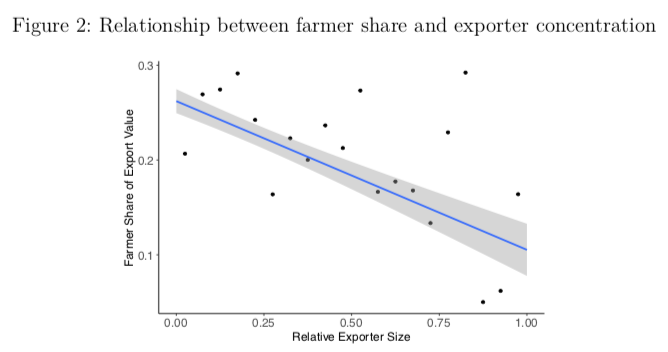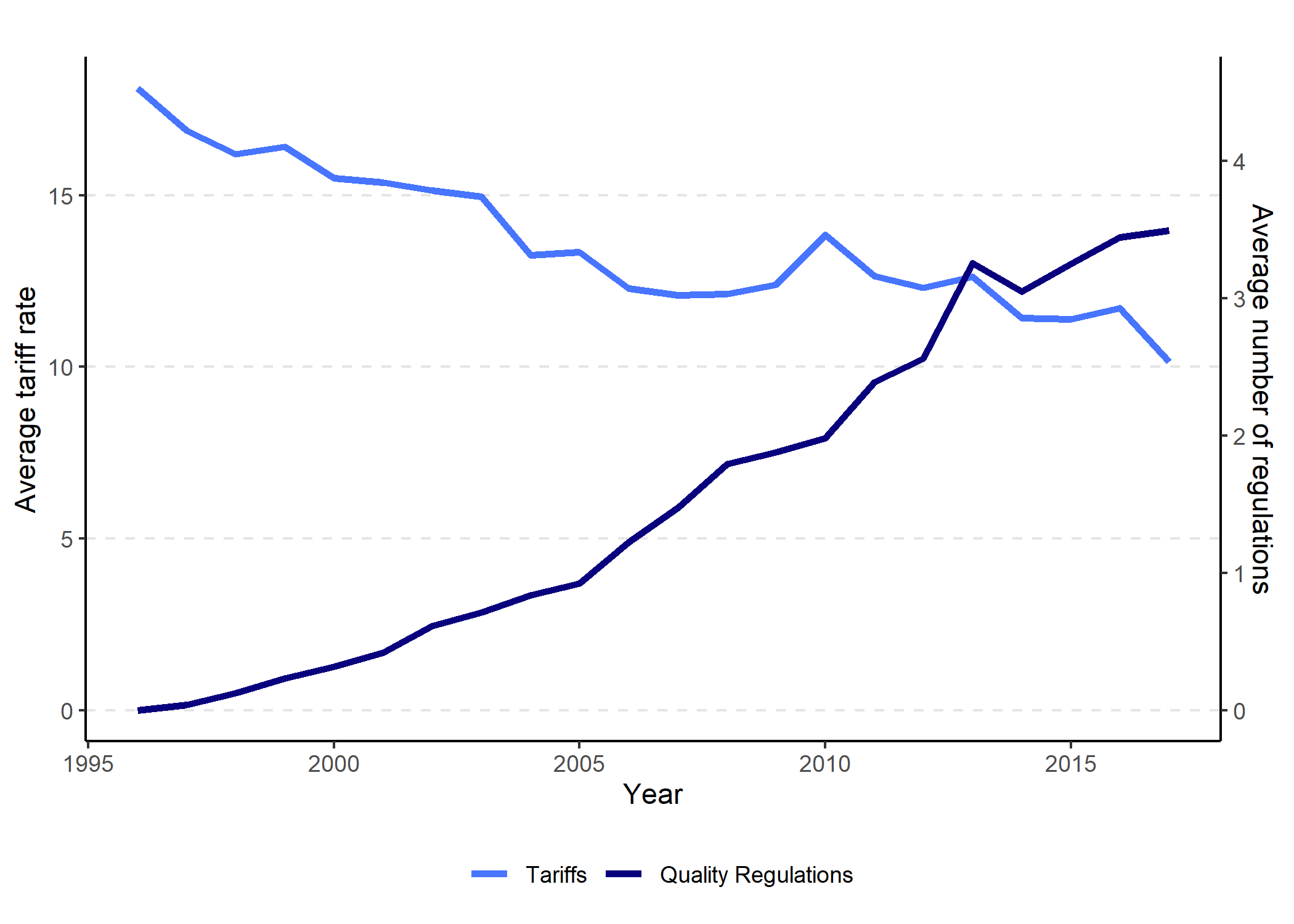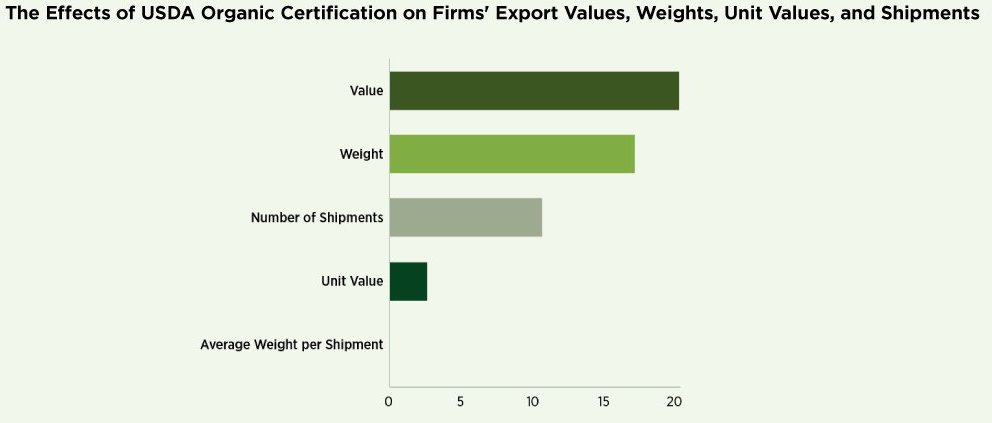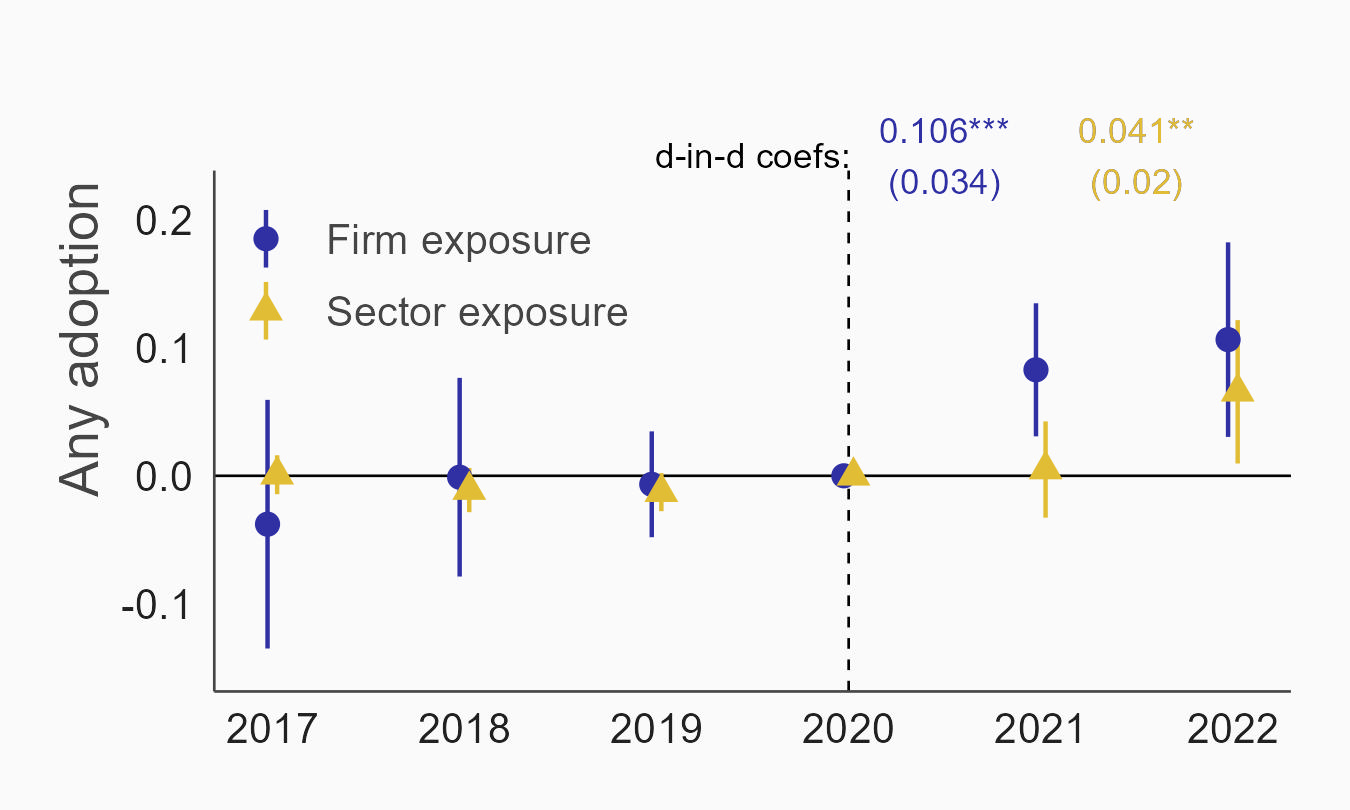
Unfair Trade: Market Power in Agricultural Value Chains
Under review.
I show that market power among exporters is a key driver of low farmer income in agricultural value chains. Using novel microdata from Ecuador, I document low farmer income and high exporter concentration across a wide range of crops. I propose a model of farmer crop choice and exporter strategic interaction that links farmer income to exporter concentration via two elasticities, which govern heterogeneity in farmer costs of switching crops and switching exporters. The estimated model implies that farmer income would be 77% higher if exporters behaved competitively. Counterfactual Fair Trade policies achieve up to half of the benefits from perfect competition, suggesting a practical method for counteracting market power.
Paper


